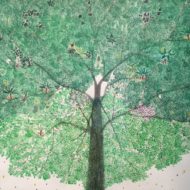A journal article I worked on during the first year of my PhD entitled “Narrating Networks: Exploring the Affordances of Networks as Storytelling Devices in Journalism”, has recently been published in Digital Journalism.
The article examines five ways in which networks have been used to tell stories in journalism, from exploring associations around single actors, to detecting key players, mapping alliances and oppositions, exploring the evolution of associations over time, and revealing hidden ties. A list of over 40 journalism projects that use network diagrams or visualisations which we compiled while doing this research has been published with the article and can be accessed on figshare.
The article is co-authored with Jonathan Gray of the University of Amsterdam, Tommaso Venturini from King’s College London and Mathieu Jacomy from the Sciences Po Paris medialab.
The title and the abstract are copied below. An open access pre-print of the paper is available here (PDF).
Continue reading “New Paper on Networks as Storytelling Devices in Journalism”



